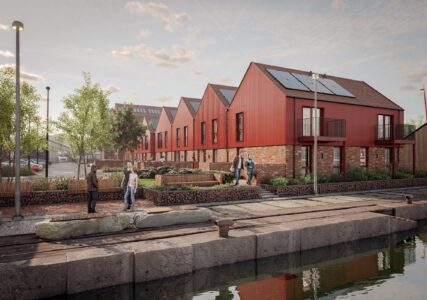Forecasting the future of Manchester’s buy-to-let market over the next five years involves considering current trends, economic indicators, and potential shifts in housing demand and policy. TK Property Group believes that Manchester is a vibrant city with a strong rental demand driven by its growing population, thriving economy, and educational and cultural hub status. The following forecast is based on these underlying factors, acknowledging that unforeseen events could impact the market dynamics.
Continued Demand for Rental Properties
Manchester’s population is expected to continue growing, fuelled by its appeal to young professionals, students, and families looking for a dynamic urban lifestyle. The city’s universities attract a significant number of students from the UK and abroad, creating a steady demand for rental properties. The expansion of Manchester’s tech, creative, and financial sectors is likely to draw even more young professionals to the city. This demographic trend suggests a sustained, if not increased, demand for rental properties, particularly those well-connected to employment hubs and amenities.
Investment in Infrastructure and Development
Planned investments in Manchester’s infrastructure, such as the expansion of the Metrolink tram system and the ongoing development of the Northern Powerhouse initiative, are expected to enhance the city’s connectivity and make it an even more attractive place to live and work. These improvements should positively impact property values and rental yields, particularly in areas undergoing regeneration or those newly connected to key employment zones.
Market Adaptation to New Working Patterns
The pandemic has accelerated the trend towards flexible and remote working, a change that may have long-lasting effects on the buy-to-let market. Properties offering space for home offices, or those in quieter, residential areas that previously may have been less in demand due to their distance from city centres, could see an increase in popularity. This shift could encourage a broader spread of rental demand across Greater Manchester, potentially affecting rental yields in different areas in varied ways.
Housing Supply Dynamics
The balance between housing supply and demand will be a crucial factor influencing the buy-to-let market in Manchester. Ongoing development projects aimed at increasing the housing stock, including new-build apartments and the conversion of commercial buildings into residential units, are likely to impact rental yields. If supply significantly outpaces demand, this could put downward pressure on rents. However, Manchester’s strong population growth is expected to sustain demand, mitigating the risk of oversupply.
Economic Factors
Economic stability and growth are key to the health of the buy-to-let market. Factors such as employment rates, wage growth, and inflation will influence tenants’ ability to pay rent and the overall demand for rental properties. Additionally, interest rates will affect mortgage affordability for investors. While it’s challenging to predict economic conditions precisely, Manchester’s diverse and growing economy suggests a degree of resilience to potential shocks.
Over the next five years, Manchester’s buy-to-let market is positioned for continued growth, driven by strong rental demand, investment in infrastructure, and the city’s appeal to a diverse population. Careful consideration of property location, type, and tenant needs will be essential for maximising returns in this dynamic market. As always, a degree of caution and flexibility will be vital in adapting to the evolving landscape of the buy-to-let market in Manchester.









